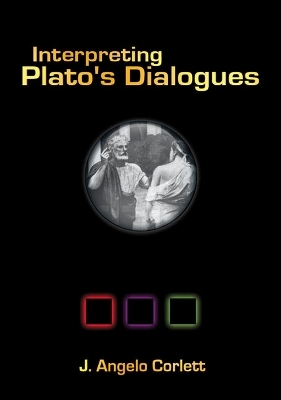
Interpreting Plato's Dialogues
Seiten
2005
Parmenides Publishing (Verlag)
978-1-930972-02-5 (ISBN)
Parmenides Publishing (Verlag)
978-1-930972-02-5 (ISBN)
Introduces readers to some key problems in understanding Plato’s writings, and explores in-depth and critically the various ways of approaching Plato. This book provides an articulation and critical evaluation of the various ways to approach Plato’s dialogues, along with the articulation and defence of a plausible new way to interpret Plato.
Interpreting Plato’s Dialogues introduces readers to some key problems in understanding Plato’s writings, and explores in-depth and critically the various ways of approaching Plato. The problem of how to interpret Plato’s dialogues dates back to Plato’s Academy, and Plato’s interpreters ought not to forego this important discussion. For how one approaches texts will inevitably influence how one interprets their contents. This is especially true of Plato’s writings, as they are, with few exceptions, dialogues. For the sake of historical accuracy, then, it is crucial that the most plausible interpretation of Plato’s works is articulated and well defended. And this is precisely what this book provides: an articulation and critical evaluation of the various ways to approach Plato’s dialogues, along with the articulation and defense of a plausible new way to interpret Plato.
This new way of approaching Plato neither sees Plato’s words as doctrines according to which the dialogues are to be interpreted, nor does it reduce Plato’s dialogues to dramatic literature. Rather, it seeks to interpret the aim of Plato’s writings as being influenced primarily by Plato’s respect for his teacher, Socrates, and the manner in which Socrates engaged others in philosophical discourse. It places the focus of philosophical investigation of Plato’s dialogues on the content of the dialogues themselves, and on the Socratic way of doing philosophy.
This book contains a comprehensive bibliography of philosophical sources on the interpretation of Plato’s corpus of writings, as well as some important works in the field of classical studies and philology. Interpreting Plato’s Dialogues provides both an analytical, scholarly, and thorough treatment of what is perhaps the most long-standing problem in Plato studies. The book serves quite well as a companion text to Plato’s dialogues and is of special interest to philosophers, classicists, and philologists.
Interpreting Plato’s Dialogues introduces readers to some key problems in understanding Plato’s writings, and explores in-depth and critically the various ways of approaching Plato. The problem of how to interpret Plato’s dialogues dates back to Plato’s Academy, and Plato’s interpreters ought not to forego this important discussion. For how one approaches texts will inevitably influence how one interprets their contents. This is especially true of Plato’s writings, as they are, with few exceptions, dialogues. For the sake of historical accuracy, then, it is crucial that the most plausible interpretation of Plato’s works is articulated and well defended. And this is precisely what this book provides: an articulation and critical evaluation of the various ways to approach Plato’s dialogues, along with the articulation and defense of a plausible new way to interpret Plato.
This new way of approaching Plato neither sees Plato’s words as doctrines according to which the dialogues are to be interpreted, nor does it reduce Plato’s dialogues to dramatic literature. Rather, it seeks to interpret the aim of Plato’s writings as being influenced primarily by Plato’s respect for his teacher, Socrates, and the manner in which Socrates engaged others in philosophical discourse. It places the focus of philosophical investigation of Plato’s dialogues on the content of the dialogues themselves, and on the Socratic way of doing philosophy.
This book contains a comprehensive bibliography of philosophical sources on the interpretation of Plato’s corpus of writings, as well as some important works in the field of classical studies and philology. Interpreting Plato’s Dialogues provides both an analytical, scholarly, and thorough treatment of what is perhaps the most long-standing problem in Plato studies. The book serves quite well as a companion text to Plato’s dialogues and is of special interest to philosophers, classicists, and philologists.
J. ANGELO CORLETTis Professor of Philosophy at San Diego State University. He is the Editor-in-Chief of the Journal of Ethics, Founder and President of the Society for Ethics, and a Fellow at the Institute for Ethics & Public Affairs. He has published four books and dozens of articles in academic journals, law reviews, and scholarly anthologies. His taught graduate courses include Plato, Theory of Knowledge, and Philosophy of Law.
| Verlagsort | Las Vegas |
|---|---|
| Sprache | englisch |
| Maße | 17 x 24 mm |
| Themenwelt | Geisteswissenschaften ► Philosophie ► Philosophie Altertum / Antike |
| ISBN-10 | 1-930972-02-4 / 1930972024 |
| ISBN-13 | 978-1-930972-02-5 / 9781930972025 |
| Zustand | Neuware |
| Haben Sie eine Frage zum Produkt? |
Mehr entdecken
aus dem Bereich
aus dem Bereich
mit Sokrates, Seneca, Platon & Co. im Gespräch
Buch | Hardcover (2023)
FinanzBuch Verlag
CHF 25,20


